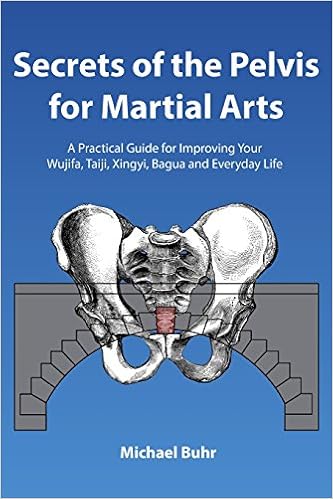For the internal gongfu practitioner the inner meaning of this movie is that to become human, that is, to become fully embodied and feeling, requires dying to being disembodied/disassociated. Feeling both emotionally and physically is what it means to be fully human and coincidentally, feeling both emotionally and physically is required to develop internal gongfu!
In this film, angels are used to represent the non-feeling, disembodied life. They represent living life disassociated from or numb to physical/emotional feelings. Their drab, black attire lacks vibrancy. Their sullen, stiff postures lack the animation of emotional expression.
In this film, humans are used to represent the feeling, embodied life of being integrated with and alive to physical/emotional feelings. Their colorful attire exudes vibrancy. Their variety of postures and animated movement exudes emotional expression.
Through the juxtaposition of colors, postures, facial expressions, and movement of these two groups, the film shows us in black & white, and in living color, two very different modes of living. When viewed this way, the title "City of Angels" then suggests that cities are full of people living their lives mechanistically, that is without feeling, being guided by the "musts" and "shoulds" rather than living life guided by a trust in what they feel.
In the internal gongfu practice, feeling is king. Yet for some, like me, it can be difficult to open areas that have long been so ardently controlled and regulated to the point where the area is in effect "shut down". But opening to feeling is an essential part of the internal gongfu process.
So as the movie rends its way through its fantasy love story plot, which I don't need to re-iterate here, be mindful of the symbolism and how this adds a rich, instructional texture to an otherwise superficial fantasy. Here are a few quotes from the movie which I found to be particularly meaningful.
The following passage is the key internal gong-fu training directive:
Seth: What am I doing?I remember many a Wujifa class years ago where I said something and my instructor asked me, "How do you know?" In those days, I responded with a lot of data. It took a long time for me to evolve to where I could say, "Because I feel it." And to this day, I still have trouble trusting what I feel. I still second-guess and rationalize away what I feel. And I wonder why my progress is stalled?
Maggie: You're touching me.
Seth: How do you know?
Maggie: Because I feel it.
Seth: You should trust that. You don't trust it enough.
In the following passage, Maggie, though she is human, provides a rather clinical/mechanical response. But Seth is looking for a feeling response.
Seth: Why do people cry?and here, you can see Maggie shift into "data mode" to provide the "correct" answer:
Maggie: What do you mean?
Seth: I mean, what happens physically?
Maggie: Tear ducts operate on a normal basis to lubricate and protect the eye. When you have an emotion, they overact and create tears.Seth, who is trying desperately to understand 'crying' from the perspective of feeling, responds:
Seth: Why? Why do they overact?
Maggie: I don't know.
Seth: Maybe emotion becomes so intense...your body just can't contain it. Your mind and your feelings become too powerful. Your body weeps.It is very interesting that Seth says, "Your body weeps." He sees humans as a fully integrated emotion-body. He does not see the two as separate. And although Maggie is human, she has been trained to respond mechanistically. Much of the love story throughout this film is based on Maggie evolving from doing what is right to trusting her feelings.
In the following passage, Mr. Messinger tries to describe what it's like to transition from being an unfeeling, disassociated "angel" to being a fully feeling human.
Mr. Messinger: You just make up your mind to do it and you do it. You wake up all smelly, and aching from head to toe...and hungrier than you've ever been...only you have no idea what hunger is or any of that stuff...so it's all real confusing and painful, but very, very good.There are a couple points in here. One is that the transition from living mechanistically to living with feeling is real confusing and painful but very good. And the other point is that every day we choose to continue living mechanistically or we choose to live with a little more feeling.
Seth: Human.
Mr. Messinger: Listen, kid: He gave these bozos the greatest gift in the universe. You think He didn't give it to us too?
Seth: Which gift?
Mr. Messinger: Free will, brother. Free will.
Although this is not a martial arts movie per se, it is a movie that was recommended to me many years ago when I began on this internal gongfu path. If you haven't seen it, go watch it. What do you notice?



No comments:
Post a Comment